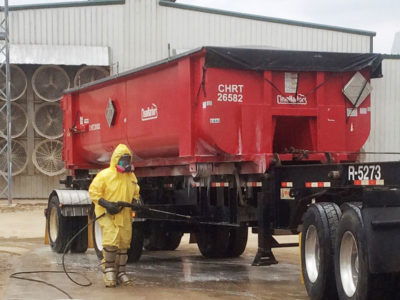Items Tagged with 'H5N1'
ARTICLES
USDA to require biosecurity audits for infected poultry operations
Rule targets facilities that want indemnity payments
Read More
Louisiana patient first hospitalized with severe avian flu
Newsom declares emergency in California outbreak
Read More








